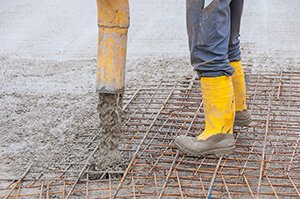READ STORIES THAT MATTER
Ibbaka Skill & Talent Blog
"Only the educated are free" — Epictetus
Range by David Epstein and my son's high school graduation inspired this post. The focus is on how to make better choices early in one’s career path, or rather, that we should try to broaden our knowledge base and sample everything we can.
A place that nobody is from, but anyone can go to
With everything changing so much around us, with all the uncertainty and questions about what will happen post-Covid, we should resolve to nurture creativity and see the world through a different set of eyes, or we should say, skills. Creativity, problem-solving, analytical thinking and critical thinking, active learning, and listening are the skills of the future.
"Art is not about itself but the attention we bring to it" — Marcel Duchamp
Skills are the building blocks of Ibbaka Talent Platform. One can create a traditional role by adding several skills and adjusting the required expertise level. However, using a similar set of skills and adding a couple of new ones or changing the context can result in a new career path. It is about career mobility, flexibility and resilience. It is about looking at your job from a different perspective or context that changes everything.
From 'what if' to 'why not' - skills open new possibilities
Sometimes acquiring just one skill or increasing the level of competency in another will open the doors to an entirely new career. No need to start over again, and the "what if" question changes to "why not."
The dark side of convenience
Habits can be a good thing, they help automate certain behaviors and to save energy so that we can concentrate on more important things. Developing, sharing, supporting skills should not be a habit. It should be something you are thinking about for your self, your team, your organization and community.
Mood follows the action
How neuroscience helps us to understand the connections between skills and behaviors. Neuroscientist Dr. Andrew Huberman has explained how changing behaviors is key to changing mood and even beliefs. Behaving in certain ways, like active listening, grows the skills needed to support the behavior. This is why behaviors can be such an important part of skill and competency models.
A spooky action at a distance - and how an architect's skills can shape a life in design
Inspired by a strange aspect of quantum physics - entanglement. A sub-particle that was in contact with another particle—even light-years away—will instantly change its properties, as if the two are connected by a mysterious communication channel. Are skills connected in the same way? Perhaps yes, as can be seen when one looks at an architect’s skills.
Professional amateurs
What can we learn from the skills that we use outside of our day-to-day jobs? Is there a correlation between what browser we use and our approach to life? Who are professional amateurs? Why do we want them on our teams?
"With concrete, you can cover almost any space." ~ Oscar Niemeyer
We can learn a lot from architecture, primarily from concepts that are seeking to truly connect with the people who will inhabit and use the new spaces. Connecting Skill Profiles to Competency Models require an approach that will allow the model to stay flexible and react to the surges of skill bubbling up from individual profiles. It's all about relationships and the context.
Connecting the dots
We are integrating the new Competency Modelling Environment with our Skill Profiles to form one, consistent ecosystem.

















